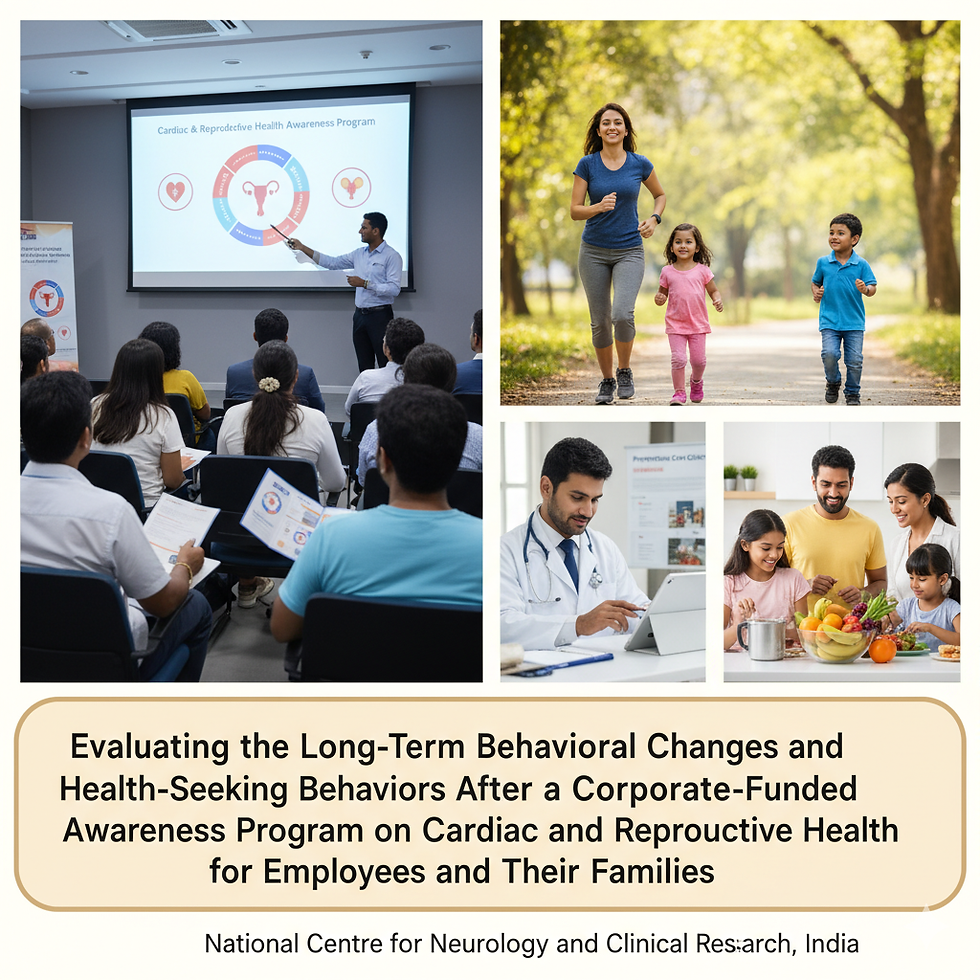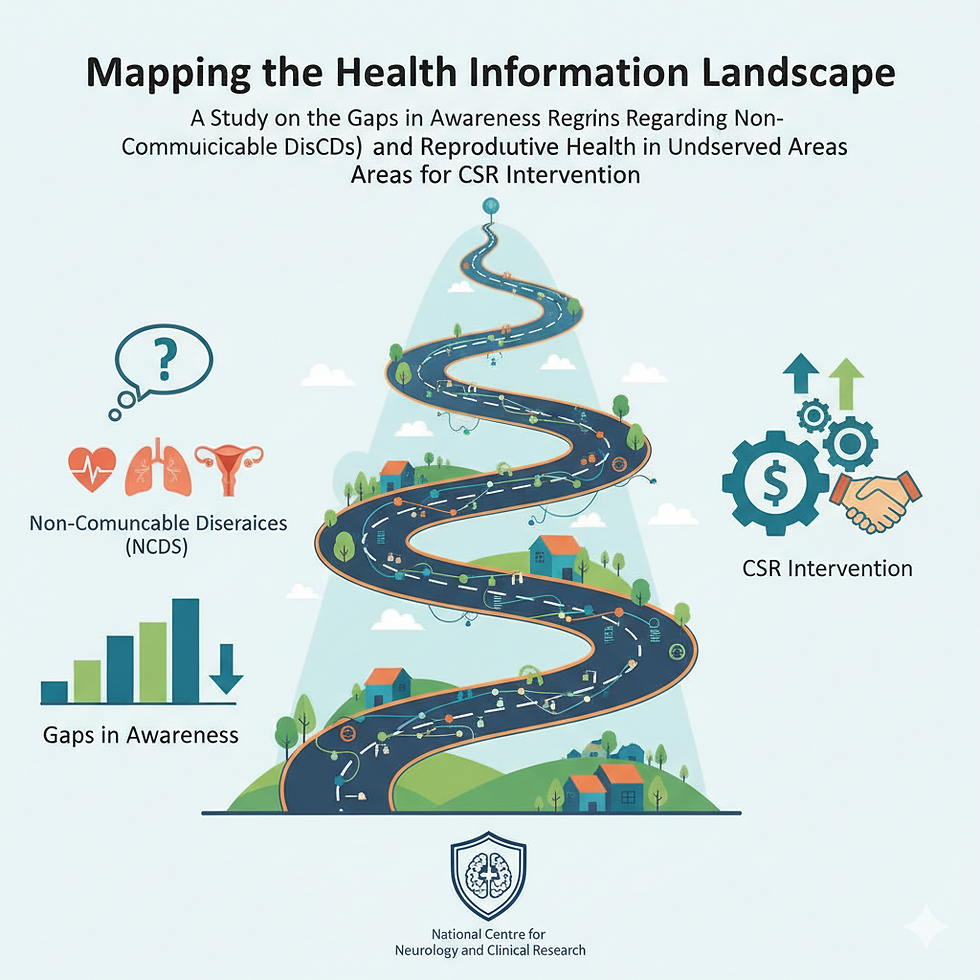Evaluating the Long-Term Behavioral Changes and Health-Seeking Behaviors After a Corporate-Funded Awareness Program on Cardiac and Reproductive Health for Employees and Their Families
- NCNCR

- Sep 8, 2022
- 1 min read
Updated: Sep 23
Corporate Social Responsibility (CSR) initiatives have evolved from simple philanthropy to strategic interventions aimed at creating sustainable social impact. Within this scope, health and wellness programs targeting specific populations have become a key focus. This document provides an introductory framework for two distinct but related studies. The first investigates the use of modern digital channels—social media and mobile applications—as a tool for health education. It will explore how these platforms can be leveraged to increase health literacy among young adults, specifically concerning the early detection of heart attack symptoms and the informed management of menstrual health. This approach recognizes the ubiquity of digital technology among this demographic, presenting an opportunity for scalable and accessible health information dissemination.
The second study moves beyond initial engagement to evaluate the long-term effectiveness of corporate-funded health awareness programs. It will analyze whether such initiatives lead to lasting behavioral changes and improved health-seeking behaviors among employees and their families. By focusing on a corporate setting, this research acknowledges the potential for health interventions to influence not only individual well-being but also workforce productivity and family health. Both studies collectively aim to provide empirical insights into the design and implementation of effective CSR health programs, highlighting both the innovative potential of digital campaigns and the critical importance of measuring long-term impact.

.png)



Comments